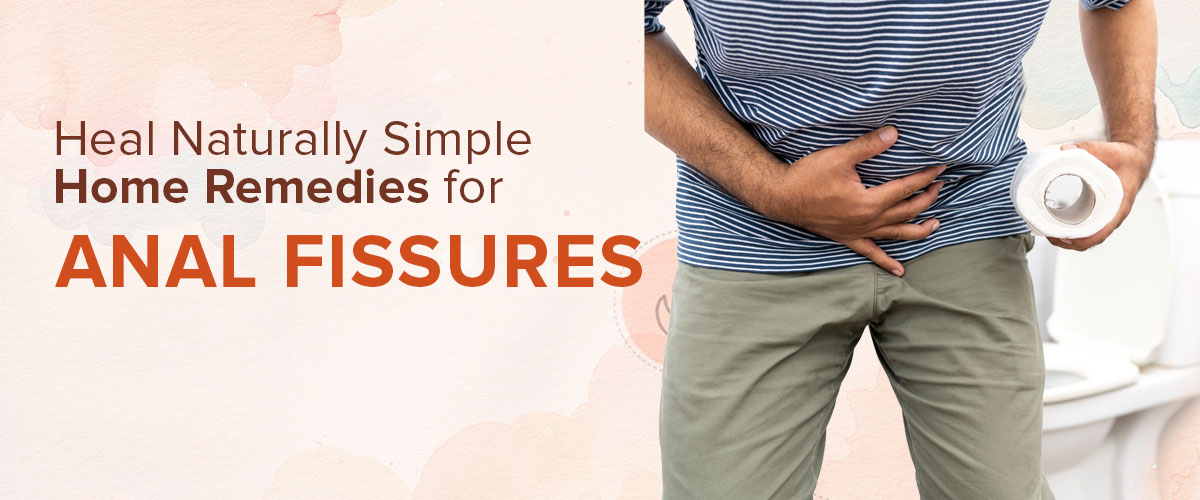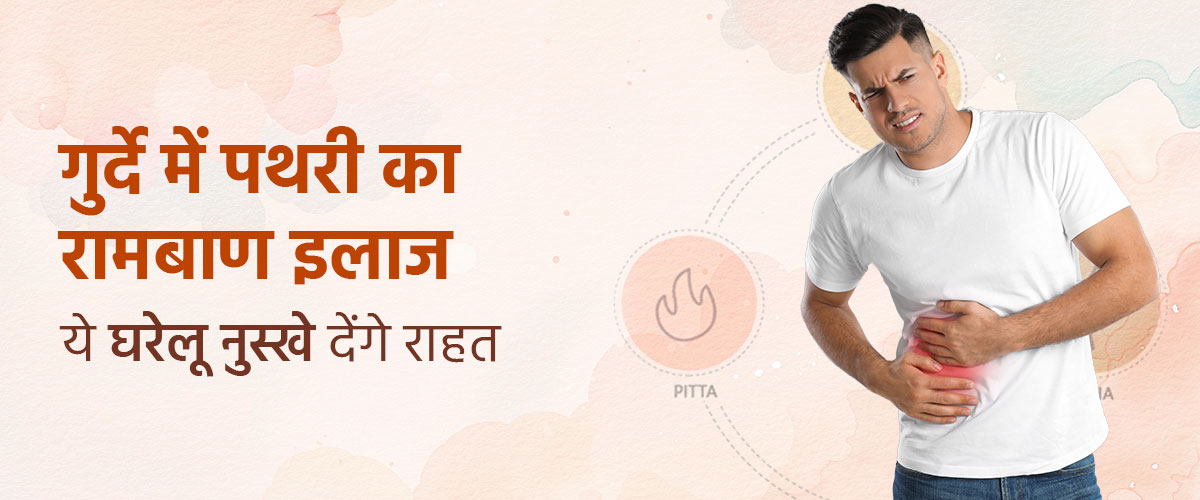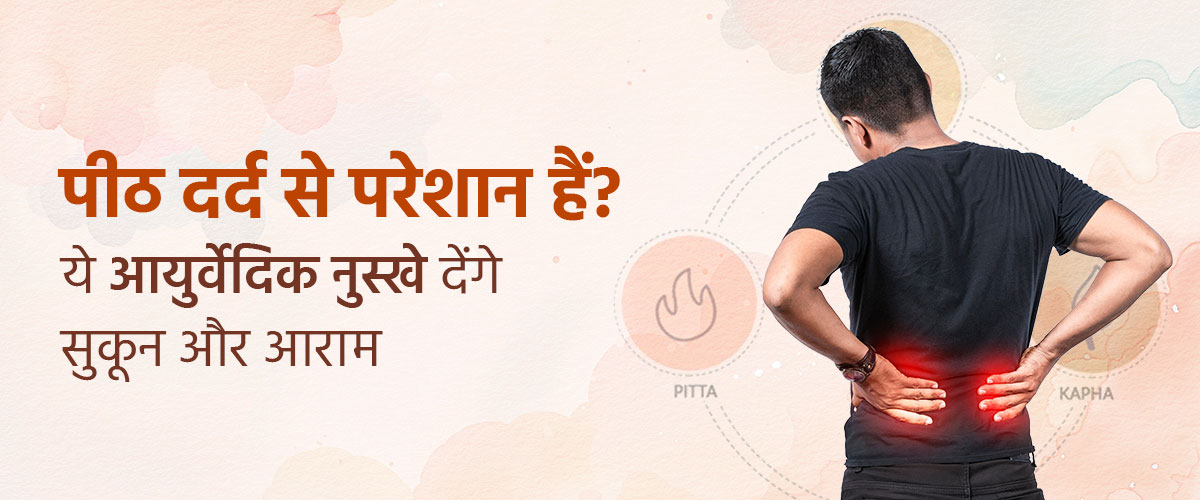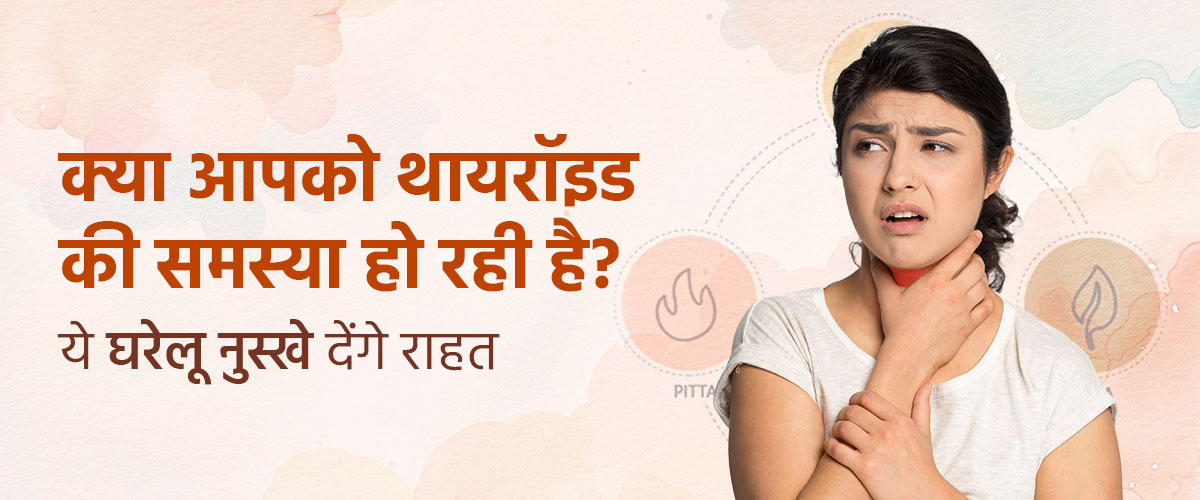Home Remedies for Anal Fissure

Anal fissures are small tears in the thin lining of the anus. It can lead to pain and bleeding during bowel movements. It is generally caused due to constipation, diarrhoea, or strain during bowel movements.
While anal fissures can be painful, they do heal with proper care. Many people prefer natural remedies to get relief from the symptoms of anal fissures & promote faster recovery. These simple yet effective home remedies can help relieve discomfort and support healing from anal fissures.
What Are Anal Fissures?
Anal fissures are tiny tears or cuts in the anal canal lining. These tears might cause sharp pain during or after bowel movements, itching, and mild bleeding. They are generally caused by excessive straining when passing hard stools, prolonged diarrhoea, or other factors that put stress on the anal area.
The symptoms of anal fissures are:
- Intense pain during bowel movements.
- Red blood on stool or toilet paper.
- A crack or tear in the skin near the anus.
- Itching/discomfort around the anal region.
Anal fissures are generally not serious but can be persistent if left untreated. They could be acute (short-term) or chronic (lasting for more than six weeks). Knowing the symptoms and causes of anal fissures can help individuals control the condition through natural remedies and lifestyle changes.
What Causes Anal Fissure?
The most common cause of anal fissures is straining during bowel movements. Several other factors might also result in this painful condition. Knowing the causes could help you avoid fissures and make necessary lifestyle modifications for recovery.
Constipation and Straining: Chronic constipation can cause anal fissures. Passing hard or large stools puts excessive pressure on the anal canal, which causes tears. Straining during bowel movements increases the chances of fissures, as stretching the sensitive tissue beyond its limit can result in a crack.
Diarrhoea: Frequent loose stools or prolonged diarrhoea can irritate the anal lining. The constant passage of watery stools may cause inflammation and tiny tears.
Childbirth: Women may have anal fissures after childbirth due to the intense pressure exerted during labour. The stretching of the perineal area & the strain of pushing can result in fissures.
Inflammatory Conditions: Certain medical conditions (like Crohn’s disease, irritable bowel syndrome, ulcerative colitis, etc.) can make the anal region more sensitive and prone to fissures.
Poor Dietary Habits: A low-fibre and high-processed food diet could result in hard stool and constipation. Both of these factors can cause anal fissures. Insufficient nutrition and hydration also cause digestive issues.
Tight Anal Sphincter Muscles: Some people naturally have tight anal sphincter muscles. This increased tension may result in small tears and prevent proper healing, resulting in recurring fissures.
Home Remedies and Tips
Anal fissures are uncomfortable and painful. There are many natural remedies that can help relieve its symptoms. These remedies focus on relieving pain, reducing inflammation, and fastening the healing process. Here are a few remedies that you can easily try out at home:
Coconut Oil: Coconut oil is a therapeutic and anti-inflammatory oil. It moisturises the anal area and reduces irritation. Apply a small amount of pure coconut oil directly to the affected area. Its antibacterial properties can also prevent infections. You can apply coconut oil 2-3 times a day to keep the area moisturised & reduce friction during bowel movements.
Aloe Vera Gel: Aloe vera has powerful healing and soothing properties. Apply fresh aloe vera gel to the fissure. It will reduce inflammation, itching, and pain. The gel has a cooling effect that provides instant relief. Ensure the aloe vera gel used is fresh and has no additives. You can use it 2 to 3 times a day.
Sitz Baths: A sitz bath is one of the most effective ways to relieve pain. Soak in warm water for 15-20 minutes several times a day. This will relax the anal muscles, improve blood circulation, and reduce swelling. Add Epsom salt or a few drops of essential oils to the water tol enhance its soothing effects. Regular sitz baths will ease the pain, keep the area clean, and aid in faster healing.
Olive Oil: Another natural way to lubricate the anal canal is olive oil. Its anti-inflammatory and calming properties ease pain and help in the healing of the fissure. Apply a few drops of olive oil to the affected area. You can also do some gentle massage. Olive oil also acts as a protective barrier, preventing further irritation and promoting smoother bowel movements.
Petroleum Jelly: Petroleum jelly is an effective home remedy for reducing pain. Apply a thin layer of petroleum jelly to the affected area. It will help to keep it moisturised & reduce friction during bowel movements. Use petroleum jelly before and after bowel movements for maximum relief.
Lifestyle and Diet Recommendations
Good hygiene, proper bowel habits, and a balanced diet can lower the discomfort, promote healing, & prevent the recurrence of anal fissures. Below is a list of a few suggested lifestyle modifications to manage & prevent anal fissures.
Maintain Proper Hygiene: Gently clean the anal area with lukewarm water after every bowel movement. Avoid using harsh soaps or scented wipes. It will prevent infection and irritation.
Avoid Straining: Do not force bowel movements. Excessive pressure can worsen fissures. Respond to the natural urge to go to the toilet.
Use Soft Toilet Paper: Opt for soft & unscented toilet paper (damp wipes) to minimise irritation and avoid friction.
Wear Comfortable Clothing: Loose-fitting and breathable cotton underwear can help keep the area dry.
Manage Stress Levels: Stress can cause digestive issues (including constipation). Practice yoga and meditation for relaxation.
Stay Hydrated: Drinking plenty of water throughout the day helps avoid constipation.
Diet for Anal Fissures
A diet which is full of fibre and important nutrients can soften stools. There are also certain food items that must be avoided.
Increase Fibre Intake: Eat foods that have high fibre content. You can eat whole grains, fruits, vegetables, legumes, etc.
Eat High-Water Content Foods: Include hydrating foods (watermelon, cucumbers, celery, and oranges) to help soften stools naturally.
Limit Processed Foods: Avoid processed and low-fibre foods (white bread, fried snacks, and sugary products) as they can cause constipation.
Avoid Spicy and Irritating Foods: Spicy, acidic, caffeinated food items, etc. can upset the digestive system and worsen the condition.
Monitor Portion Sizes: Consume smaller and more frequent meals instead of large food portions to regulate and prevent strain during bowel movements.



 Prev
Prev































































































































